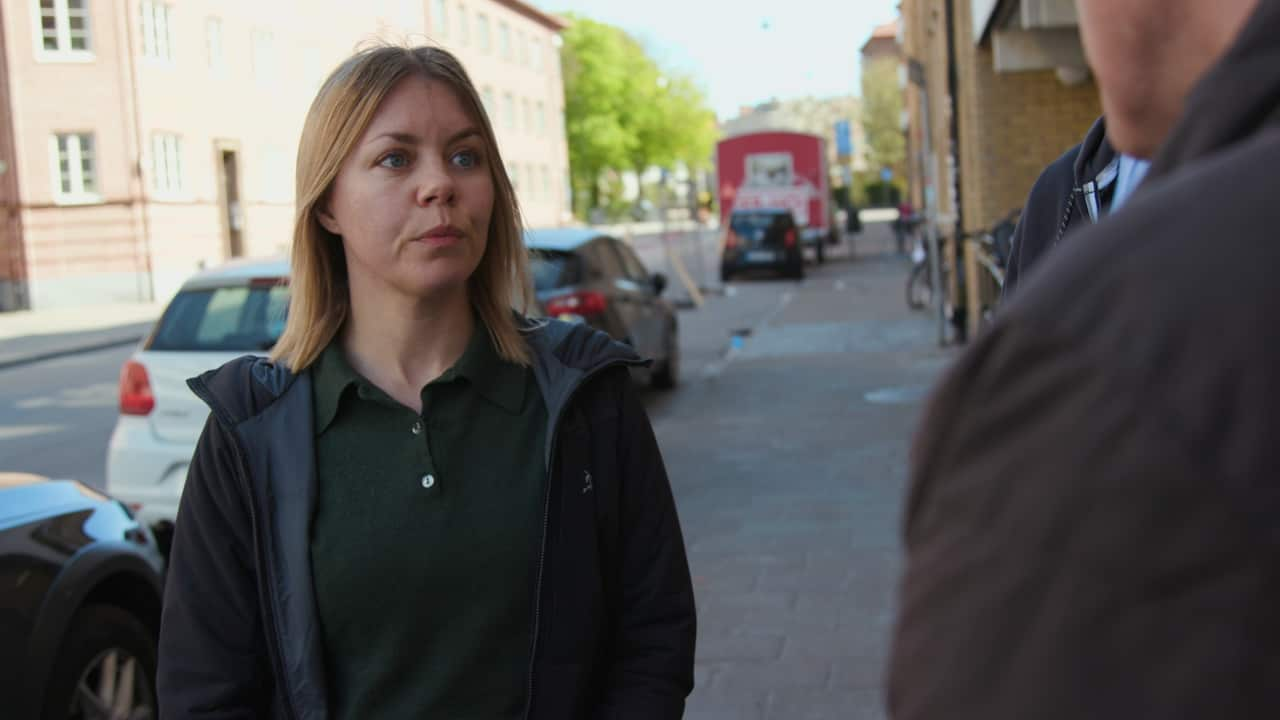

5 min read
This article is more than 2 years old
Scandi noir come to life: Fighting the gun crime epidemic in Sweden
As gun violence grips the once-peaceful nation of Sweden, Dateline meets the people fighting for safer communities.
Published
Updated
By Rhiona-Jade Armont
Source: SBS
Image: Sweden is now the epicentre of gun violence in Europe.
Sweden, once seen as a safe and progressive nation, is now the epicentre of gun violence in Europe.
With 342 shootings last year, many of these deadly shootings don’t make the news, leaving it to citizens to document these cases.
By day, Mike is an office manager. By night, he stalks crime scenes in the capital Stockholm.
He gets tip-offs from Facebook, news sites and some of his 40,000 followers on Instagram.

Mike takes photographs of crime scenes in Sweden.
He feels it’s his duty to record and share these crimes with society, in order to show the true scale of the issue.
“Crime statistics in every way, even if it's stabbings or shootings or explosions, everything is increasing and that's a scary development,” he says.
“We can't close our eyes to it.”
Mike takes us to Skarpnäck, in southern Stockholm, where he says gun violence has increased over the last couple of months.
Pointing to an open-air shopping square, he tells us about a man in his 20s who was shot several times in broad daylight.
“Today, there's no respect for third parties, " he says.
"You just go ahead. If you want to kill someone, it doesn't matter if it's broad daylight or in the middle of a centrum (town centre), or if it's lots of people around you.”
Increasing violence
Shootings in public spaces like this have claimed hundreds of lives across Sweden in recent years.
In a suburb of Gothenburg, rocked by years of gang violence, 16-year-old Elias was gunned down by two men in cold blood.
Elias is described as a good student with a bright future, who had no affiliation with gangs.
The only explanation for his murder is a tragic case of mistaken identity.

Elias was aged 16 when he was shot by two men in cold blood.
Three or four nights a week, these mothers set out to patrol the streets, looking for young men who might be involved or are targets of these crimes.
“We talk to them straight away when we see young people selling drugs or if they are up to something not good,” Hiba says.
“We talk to the young people and say “Why are you here? What are you doing here? “Now you must go home. It’s time to go to bed.””

Hiba's son Elias was murdered in gang-related violence.
“We [have known] these young people since they were little. All the young people in this area know us, they respect us.”
Their only hope is that more mothers and community members would join the fight to drive the fatalities down.
“The solution is community, and the Swedish authorities must take it seriously, many young people die every day, they have to spend money, more police presence, and customs,” Hiba says.
“So not just the police. Parents must come out and see what their children are doing out there.”
Searching for solutions
Like most areas in Sweden that are vulnerable to gun crime, Hiba’s community has a large immigrant population, high unemployment, and is known for drugs and gang violence.
The issue of gang violence is something authorities are desperately trying to tackle.
In Rosengård, a central district of Malmö, police officers Glen and Stefan believe they’ve found a way to curb the crime where it starts.
The program, called Stop Shooting, not only targets perpetrators of gun crime, but anyone who associates with such gang members.

Police officers Glen and Stefan believe they can drive down gang violence.
But leaving a life of crime, especially for those involved in gangs, is not so simple.
While the police deter gang members with punishment, other government agencies in the program are ready to help them start a new life.
Rebeca is a social worker who works to offer another pathway.
“We sit down with them and we ask them, what do you think you need, to leave the criminal lifestyle? And then we see if we can meet those needs.”

Rebeca is a social worker who tries to help people leave the criminal lifestyle.
“[Over] the last three years, we have moved 40 [people],” Rebeca says.
“They have been relocated to another city and we have also helped 85 others within the city of Malmö. So that's quite a big number.”
Since the program began, shootings have decreased by two-thirds.
It’s now being rolled out in other gun crime hotspots across Sweden in the hope that lives at both ends of the violence will be saved.
